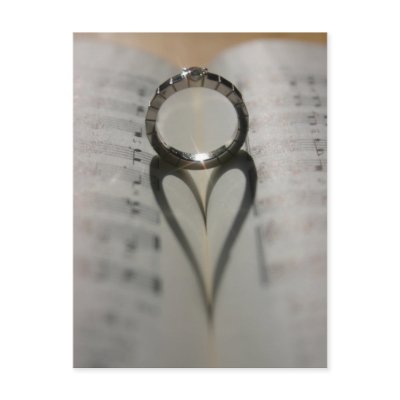‘I am one of those who helped usher in this barbaric age.’ After putting thousands of unborn children to death, he became one of the great leaders of the pro-life movement.
by STEPHEN VINCENT 02/21/2011 
REPENTED. Dr. Bernard Nathanson in an undated photo.
NEW YORK — Dr. Bernard N. Nathanson, an obstetrician who oversaw the performance of about 75,000 abortions before becoming a leading pro-life advocate and a convert to the Catholic faith, died at his home in New York Feb. 21 after a prolonged battle with cancer. He was 84.
After performing his last abortion in 1979 and declaring himself to be pro-life, Nathanson produced the 1985 film
The Silent Scream, which shows sonogram images of a child in the womb shrinking from an abortionist’s instruments, and the documentary film
Eclipse of Reason, which displays and explains various abortion procedures in graphic detail. Both films had a significant impact on the abortion debate, solidified his credentials among pro-life advocates and earned him the scorn of his former pro-abortion friends and colleagues.
He also published a number of influential books, including
Aborting America, written in 1979 with Richard Ostling, then a religion reporter for
Time magazine, in which he exposed the deceptive and dishonest beginnings of the pro-abortion movement and undermined the argument that abortion is safe for women.
He often admitted that he and other abortion advocates in the 1960s lied about the number of women who died from illegal abortions at that time, inflating the figure from a few hundred to 10,000 to gain sympathy for their cause.
In his 1996 autobiography
The Hand of God, he told the story of his journey from pro-abortion to pro-life, saying that viewing images from the new ultrasound technology in the 1970s convinced him of the humanity of the unborn baby. Outlining the enormous challenge of restoring a pro-life ethic, he wrote, “Abortion is now a monster so unimaginably gargantuan that even to think of stuffing it back into its cage … is ludicrous beyond words. Yet that is our charge — a herculean endeavor.”
He noted, regretfully, “I am one of those who helped usher in this barbaric age.”
His pro-life witness could not easily be dismissed as one-sided propaganda since Nathanson had enjoyed such a high standing among abortion supporters as a co-founder of the National Association for the Repeal of Abortion Laws (now called NARAL ProChoice America), and as operator of what he called the nation’s busiest abortion business. The facility was opened in New York City after the state’s abortion laws were loosened in 1970 and abortion promoters realized that the high number of women seeking abortion could not all be admitted to a hospital for the procedure. A freestanding ambulatory clinic, in which abortion and recovery took about three hours, was an innovation devised by Nathanson and his colleagues.
Overall, Nathanson estimated, he presided over 60,000 abortions as director of the facility, instructed fellow practitioners in the performance of 15,000 other abortions, and personally performed about 5,000 abortions, including one on his own child conceived with a girlfriend in the 1960s.
Baptized Catholic
For more than a decade after he became pro-life, Nathanson described himself as a Jewish atheist, but in December of 1996 he was baptized a Catholic by Cardinal John O’Connor in a private Mass with a group of friends in New York’s St. Patrick’s Cathedral. He also received confirmation and first Communion from the cardinal.
About his baptism, he said, “I was in a real whirlpool of emotion, and then there was this healing, cooling water on me, and soft voices, and an inexpressible sense of peace. I had found a safe place.”
Among those concelebrating the Mass was Father C. John McCloskey, an Opus Dei priest who had instructed Nathanson in the faith over a number of years.
“He was a pro-life prophet,” Father McCloskey said in a recent Register interview. “He saw the whole culture of death coming, and knew that abortion was just the tip of the iceberg.”
Nathanson visited Father McCloskey periodically over the course of a decade, the priest said, and one day in 1994 announced that he wanted to become a Catholic. After his baptism, Father McCloskey said, “He practiced the faith, he frequented the sacraments, and spoke about his Catholicism unabashedly.”
Nathanson later said that he was drawn closer to God while viewing a massive Operation Rescue event, when hundreds sat down in front of a New York Planned Parenthood building, blocking traffic. The sight of so many pro-lifers selflessly sacrificing their selves and risking arrest made him realize that they must be answering a higher call, he explained.
In an epilogue to the second edition of
The Hand of God, Father McCloskey called the book “one of the more important autobiographies of the twentieth century,” which documents “man’s inhumanity both to humanity and to his personal self, and the possibility of redemption.”
Another strong factor in his conversion was the book
Pillar of Fire, by noted psychiatrist Dr. Karl Stern, who tells of his own journey from Judaism to the Catholic Church. Nathanson studied briefly under Stern in medical school, though at that time he did not know about Stern’s conversion. It was only years later, when Nathanson read
Pillar of Fire that he learned off his former professor’s religious views.
Nathanson’s godmother for baptism was Joan Andrews Bell, who had served more than a year in jail for blocking the entrances to abortion businesses.
She said she spoke to Nathanson by phone in February 2011, when he only had the strength to speak a few sentences. “He said he was praying for us, and I told him we love him and pray for him, too,” she said.
“He will be remembered as a very strong advocate for the babies,” she continued. “One factor stood out, knowing him over the years, and that was that he had a deep pain for what he had done in terms of abortion. I remember there were periods he was fasting; he underwent huge amounts of fasting to make up for it.”
She said that he had “a deep and tender heart,” and that once he saw the truth about abortion, he was determined to stop it. “He was like St. Paul, who was a great persecutor of the Church, yet when he saw the light of Christ, he was perhaps the greatest apostle for the Gospel. Dr. Nathanson was like that after his conversion. He went all around the world talking about the babies and the evils of abortion. Being his godmother was such an amazing thing, to see him come to Christ.”
Nathanson was married and divorced three times before being married in the Church by Father McCloskey soon after becoming a Catholic. His wife, Christine, survives him, as does his grown son, Joseph, by an earlier union.
A Doctor’s Son
Bernard Nathanson was born in New York City July 31, 1926. His father was a highly accomplished obstetrician/gynecologist who taught in various prestigious medical schools. Nathanson grew up with his younger sister in a secular Jewish home. As he explained in his autobiography, his father sent him to Hebrew school yet would question and undermine the teachings of the rabbis.
He described his father as an excellent and ethical physician who was less than exemplary in his personal life. He was dominating and overbearing, and cheated on his wife. Nathanson wrote that his sister “lost her personality” under their father’s influence and committed suicide at age 49, an event that grieved his father so greatly that he never mentioned her in conversation afterward.
Nathanson followed in his father’s footsteps, attending McGill University Medical College in Montreal, where he had his first experience with abortion after he got his girlfriend pregnant. He used the money received in the mail from his father to pay for her abortion, at a time when the procedure was illegal. “It served as my introductory excursion into the satanic world of abortion,” he later wrote.
After graduating from medical school in 1949, he did his residency in Chicago and New York, at one time working in the same hospital as his father. In 1953 he enlisted in the U.S. Air Force and served for a few years as an obstetrician/gynecologist.
After his military stint, he settled in New York and began building a thriving ob-gyn practice. While working with poor patients, he saw the scarring effects of illegal abortions on the women. He wrote, “Illegal abortion was in 1967 the number one killer of pregnant women.”
In New York, he got another girlfriend pregnant and decided to perform an abortion on her himself. About aborting his own child, he wrote in
The Hand of God: “I swear to you that I had no feelings aside from the sense of accomplishment, the pride of expertise.”
He added, describing the abortionist’s mindset: “icy; conscienceless; remorselessly perverting his medical skills; defiling his ethical charge; and helping, nay seducing, with his clinical calm, his oh-so-comforting professionalism, women into the act that comes closest to self-slaughter.”
Busiest Abortion Business
While not giving up his ob-gyn practice, Nathanson became heavily involved in abortion in 1968 after meeting Larry Lader, a politically connected public relations master who was obsessed with overturning New York’s abortion laws. In looking for an easy target to attack for media attention, Nathanson said, they chose the Catholic Church, whose opposition to abortion they blamed for every botched illegal abortion they brought before the media.
Bolstered by a coalition of abortion doctors and a burgeoning feminist movement, New York’s lawmakers passed a bill to overturn the state’s century-old abortion restrictions, which was signed into law by Republican Gov. Nelson Rockefeller on July 1, 1970.
Soon Nathanson was the director of the new Center for Reproductive and Sexual Health (CRASH) in Manhattan, which he described as the “largest abortion clinic in the Western world,” with referrals from all along the Eastern seaboard and beyond.
Looking back on those years, he wrote, “I had a young son and a wife, but I was hardly ever at home. I bitterly regret those years, if for no other reason than that I failed to see my son grow up.”
As he became more publicly associated with abortion, he was treated as a “pariah” in legitimate medical circles and received fewer obstetrical referrals. For these reasons, he decided to leave the abortion facility at the end of 1972 and took the position as chief of obstetrics at St. Luke’s Hospital, where he kept doing abortions for what he considered “medically justified reasons.”
Yet the advent of ultrasound technology eventually convinced him that a true human being is killed in abortion, and he began to develop what he called the “vector theory of life.” By this he meant that from the time of conception, the unborn child has a self-directed force of life that, if not interrupted, will lead to the birth of a human baby. He knew this was not “potential life,” as the Supreme Court ruled in
Roe v. Wade.
Writing in
The Hand of God, Nathanson described a turning point in his thinking: “I believe the fertilized ovum (zygote) to be a new individual launched along an unimaginably busy vector of life that terminates when the vector finally moves its 180 degrees to the negative pole.”
The trajectory of this insight would lead him to his own 180-degree turn in thinking and eventually to work against legal abortion and the industry that promoted it.
Funeral arrangements are pending.
Register correspondent Stephen Vincent writes from Wallingford, Connecticut.
May he Rest in Peace.





















